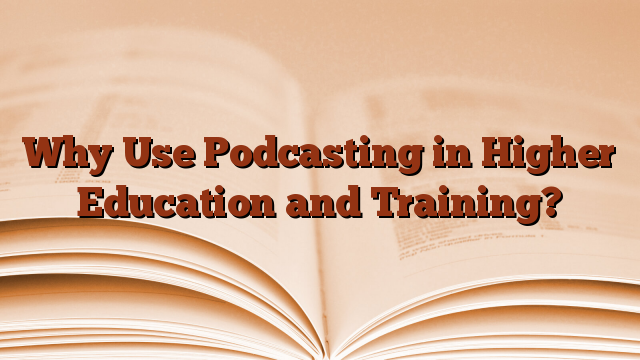Podcasting is just one technology within a whole range of web-based technologies used in distance learning. In addition, podcasting can be used in many different teaching methods. As such, there are many combinations of what is possible with podcasting in education.
For example, consider combining a teacher podcast with student and teacher discussion groups and vlogging student presentations. Or maybe a face-to-face class in which students create a podcast project that alternates between classes. This allows students to engage in sharing research and perspectives on course materials.
The important point is that we do not have to limit ourselves to one teaching model. This premise is especially true when we have the opportunity to work with digital natives who may very well catalyze new perspectives on the content during the creative process.
Podcasting is a movement that could bring more of the public into the media. It is called the “democratization of the media”.
Couldn’t podcasting be a similar push towards co-learning in colleges and universities? Perhaps we could start to see teachers and students sharing, interacting and engaging more through these mediums. The professors are content experts, the students can contribute expertise in digital culture. This provides a place where we could have a creative connection.
Additionally, there are big questions right in front of us that I think students of all ages can explore in higher education, such as:
- Political issues colliding in the cramped spaces of our classrooms
- Cultural understanding that needs to be understood within our local and global communities
- Economic issues that affect a global audience and not just local or regional spaces
Such questions offer fruitful opportunities for 20-, 30-, or 50-year-old learners to become podcasters. Or similar any aged podcast listener?
From creating podcasts to criticizing their meaning to building new understandings, digital media is a nexus of innovation, technology and empowerment, and these are generative elements. Let’s unleash some new possibilities of deeper learning coupled with creativity and expressions of understanding. Effective 21st century communicators need the same skills to succeed in business. Why not take advantage of the need, resources and opportunity to develop engaging critical audio projects in higher education classrooms and training environments?
In a future article, we’ll discuss how podcasts offer other benefits to these constituencies as well.
Thanks to Dr. Kathleen P. King

Leave a Reply